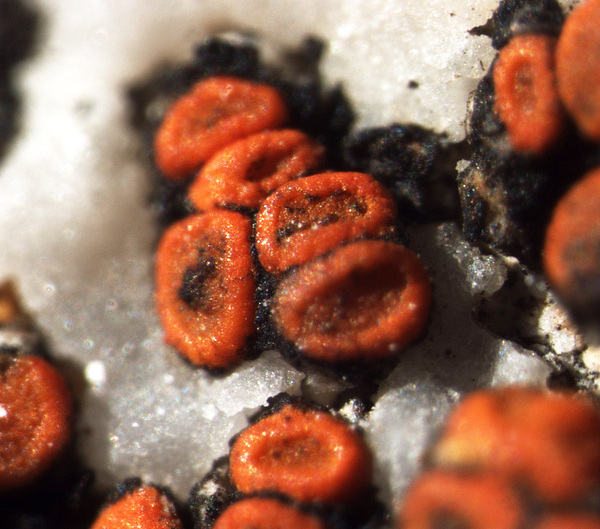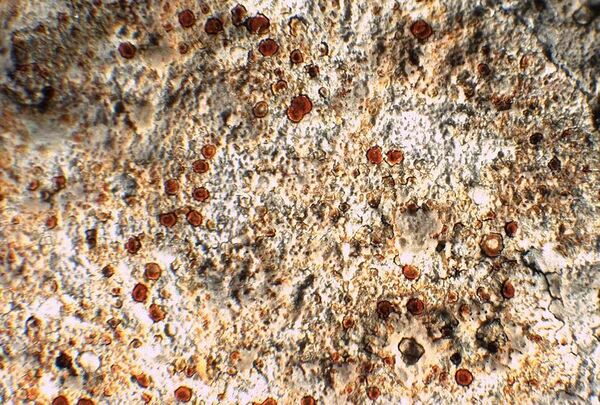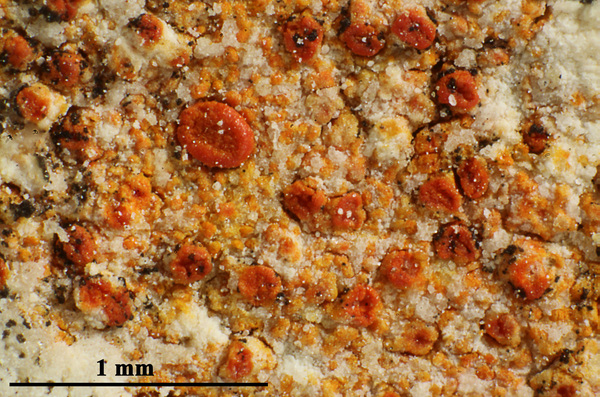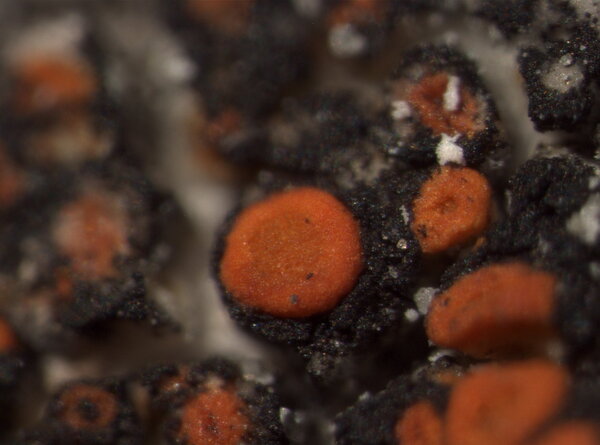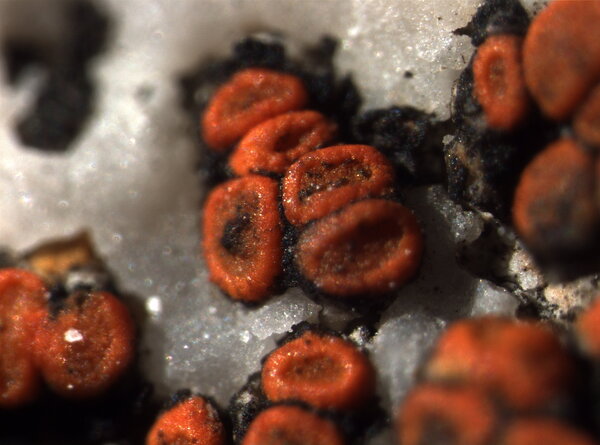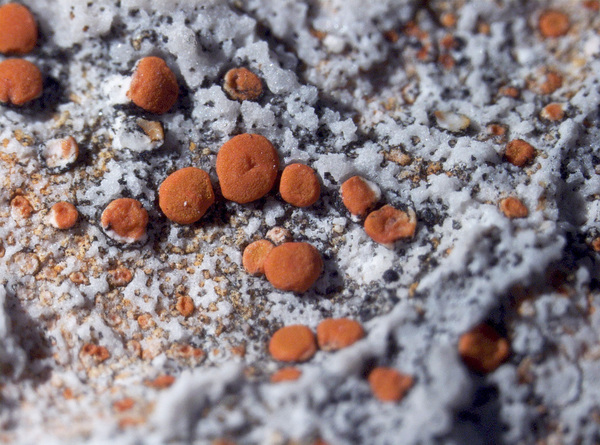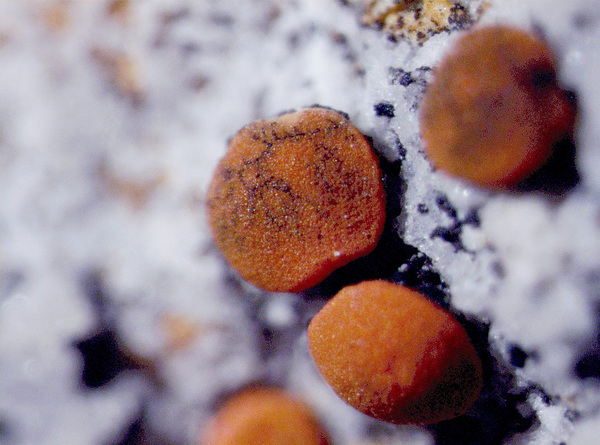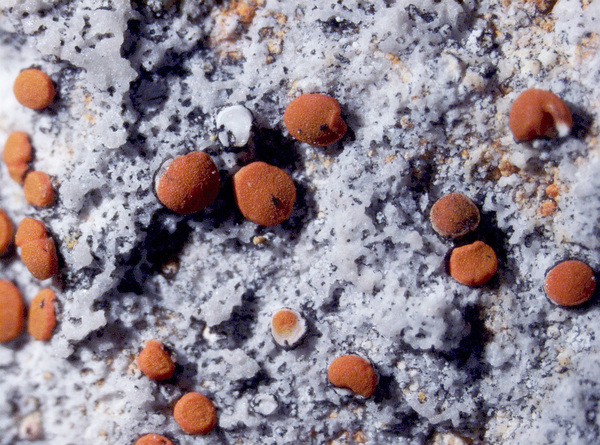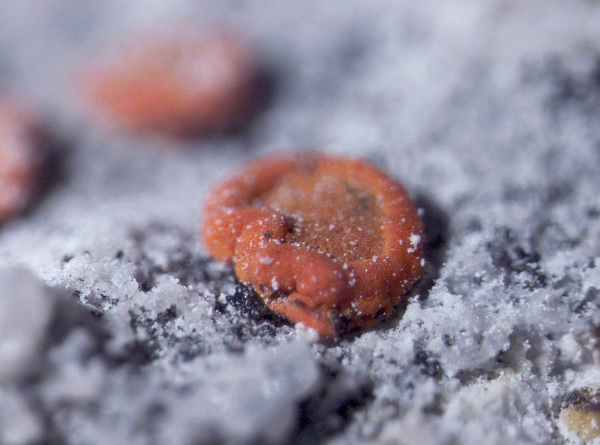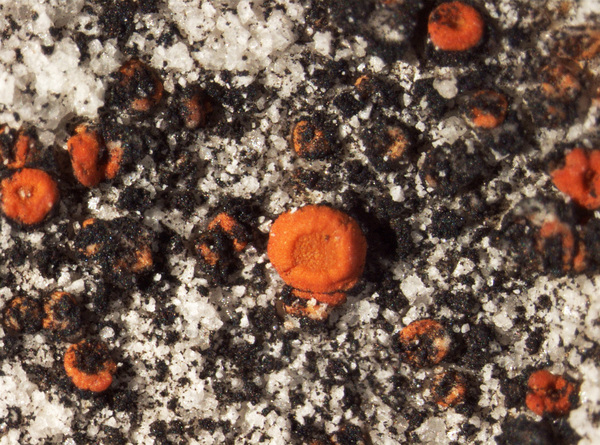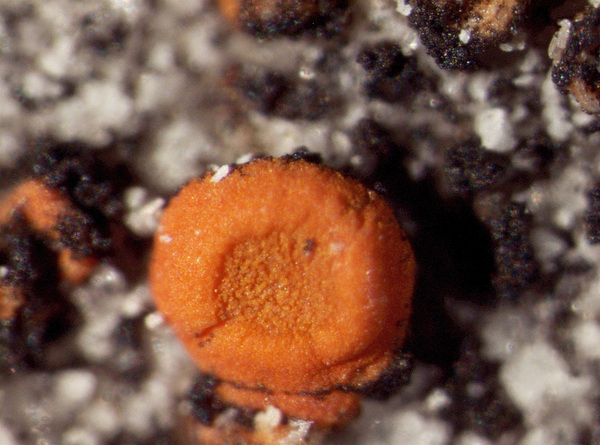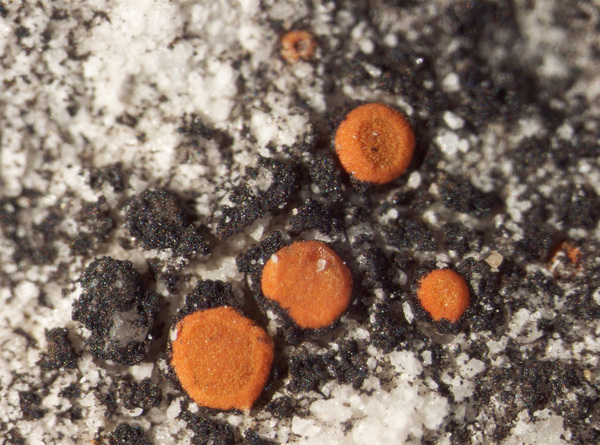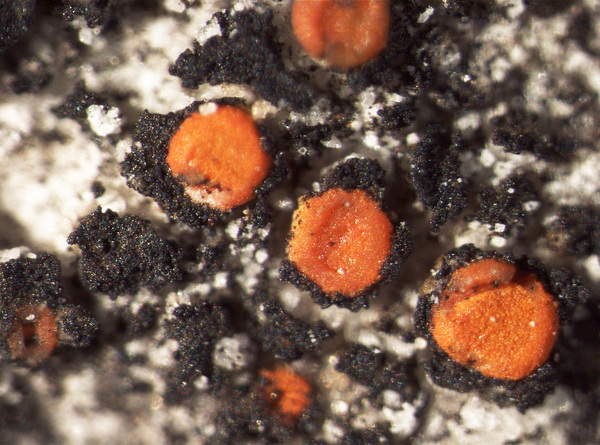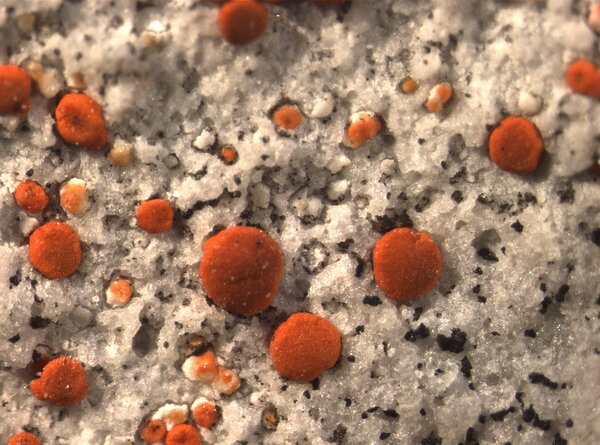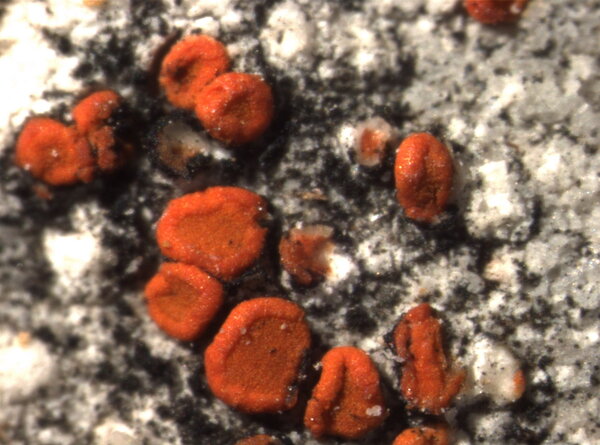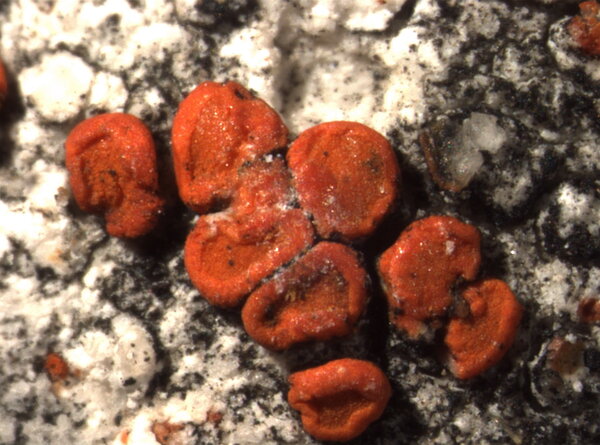Caloplaca coccinea (Müll. Arg.) Poelt
Mitt. bot. Staatss. München, 12: 5, 1975. Basionym: Blastenia coccinea Müll. Arg. - Flora, 50: 366, 1867.
Synonyms: Blastenia arnoldiana Servít & Cern.; Caloplaca arnoldiana (Servít & Cern.) Servít & Poelt; Caloplaca flammea (Anzi) Jatta; Placodium flammeum Anzi
Distribution: N - Frl, Ven (Nascimbene & Caniglia 2000, 2003c, Nascimbene & Marini 2007), TAA (Nascimbene & al. 2022), Lomb, Piem (Nascimbene & al. 2021), VA (Nascimbene & al. 2021, Obermayer 2023), Emil (Fariselli & al. 2020). C - Marc (Nimis & Tretiach 1999), Abr (Recchia & Villa 1996, Nimis & Tretiach 1999, Gheza & al. 2021), Mol (Nimis & Tretiach 2004, Caporale & al. 2008).
Description: Thallus crustose, indistinct and endosubstratic, or episubstratic and consisting of very small, scattered, orange-pink areoles often visible only around the apothecia. Apothecia biatorine or zeorine, 0.2-0.8(-1) mm across, at first immersed, then sessile and slightly projecting, with a flat to weakly convex, deep carmine red, smooth disc, and an initially prominent, then thinner, slightly paler, smooth proper margin. Proper exciple prosoplectenchymatous, 60-100 μm wide, with very few to no algal cells; epithecium orange, K+ purple-red; hymenium colourless, 50-70 mm high; paraphyses simple or sparingly branched in upper part, 1.5-2 µm thick at mid-level, the terminal cells swollen, to 5(-7) μm wide; hypothecium colourless, prosoplectenchymatous, usually inspersed with oil droplets. Asci 8-spored, clavate, functionally unitunicate, apically thickened with a broad internal beak, the inner part of apex and external cap I+ blue, Teloschistes-type. Ascospores 2-celled, polarilocular, hyaline, ellipsoid, 8-12(-13.5) x (3-)5-7.5 μm, the equatorial thickening (“septum”) 2-5 μm. Pycnidia usually abundant, partially immersed, the ostiolar region orange-red. Conidia bacilliform, 2.5-3.5 x 1.5 μm. Photobiont chlorococcoid. Spot tests: thallus and apothecia K+ purple-red, C-, KC-, P-. Chemistry: thallus and apothecia with emodin, fallacinal, parietin, parietinic acid, and teloschistin.Note: on steeply inclined, partially shaded surfaces of calcareous rocks above treeline; known from the mountains of southern Europe, and certainly ranging throughout the Alps.
Growth form: Crustose endolithic
Substrata: rocks
Photobiont: green algae other than Trentepohlia
Reproductive strategy: mainly sexual
Commonnes-rarity: (info)
Alpine belt: rather rare
Subalpine belt: absent
Oromediterranean belt: absent
Montane belt: absent
Submediterranean belt: absent
Padanian area: absent
Humid submediterranean belt: absent
Humid mediterranean belt: absent
Dry mediterranean belt: absent

Predictive model
Herbarium samples
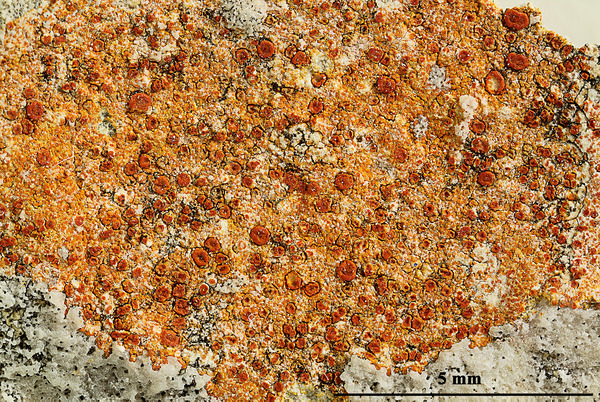

Felix Schumm - CC BY-SA 4.0
[19574], Austria, Salisburgia, Tennengebirge, Abtenau, in pede orient. montis, Fritzer-Kogels, alt. 2120 m, ad saxa calcarea. Leg. H. Wittmann (8446), 25.5.1986. VEZDA: LICHENES SELECTI EXSICCATI NR. 2112.
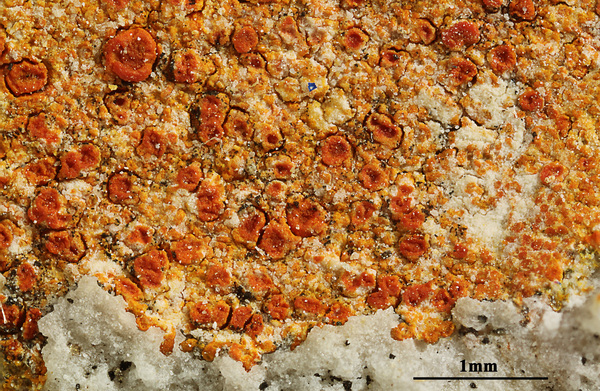

Felix Schumm - CC BY-SA 4.0
[19574], Austria, Salisburgia, Tennengebirge, Abtenau, in pede orient. montis, Fritzer-Kogels, alt. 2120 m, ad saxa calcarea. Leg. H. Wittmann (8446), 25.5.1986. VEZDA: LICHENES SELECTI EXSICCATI NR. 2112.
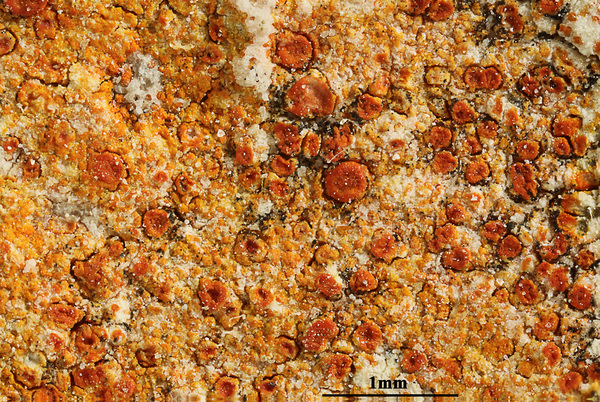

Felix Schumm - CC BY-SA 4.0
[19574], Austria, Salisburgia, Tennengebirge, Abtenau, in pede orient. montis, Fritzer-Kogels, alt. 2120 m, ad saxa calcarea. Leg. H. Wittmann (8446), 25.5.1986. VEZDA: LICHENES SELECTI EXSICCATI NR. 2112.
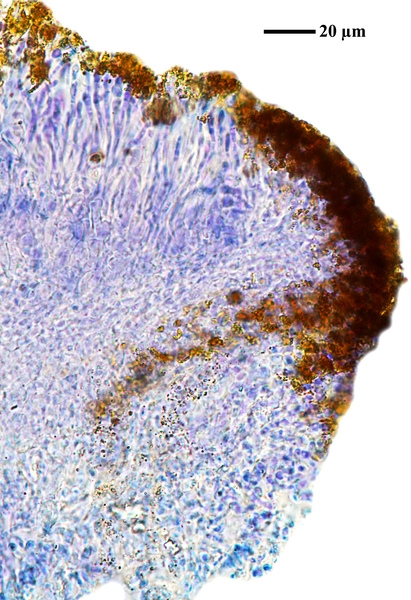

Felix Schumm; Owner: Felix Schumm - CC BY-SA 4.0
[19574], Austria, Salisburgia, Tennengebirge, Abtenau, in pede orient. montis, Fritzer-Kogels, alt. 2120 m, ad saxa calcarea. Leg. H. Wittmann (8446), 25.5.1986. VEZDA: LICHENES SELECTI EXSICCATI NR. 2112.
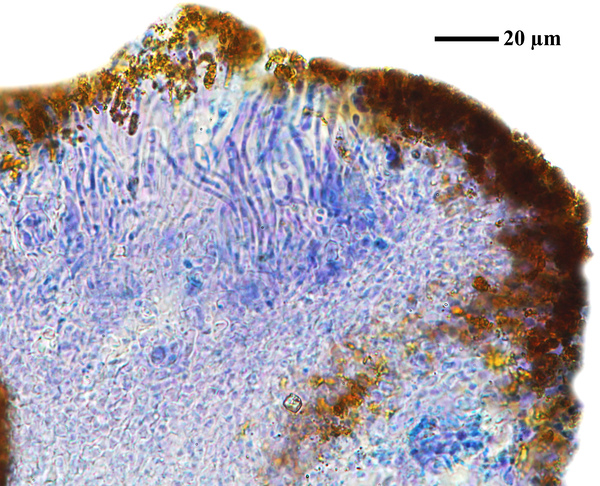

Felix Schumm; Owner: Felix Schumm - CC BY-SA 4.0
[19574], Austria, Salisburgia, Tennengebirge, Abtenau, in pede orient. montis, Fritzer-Kogels, alt. 2120 m, ad saxa calcarea. Leg. H. Wittmann (8446), 25.5.1986. VEZDA: LICHENES SELECTI EXSICCATI NR. 2112.
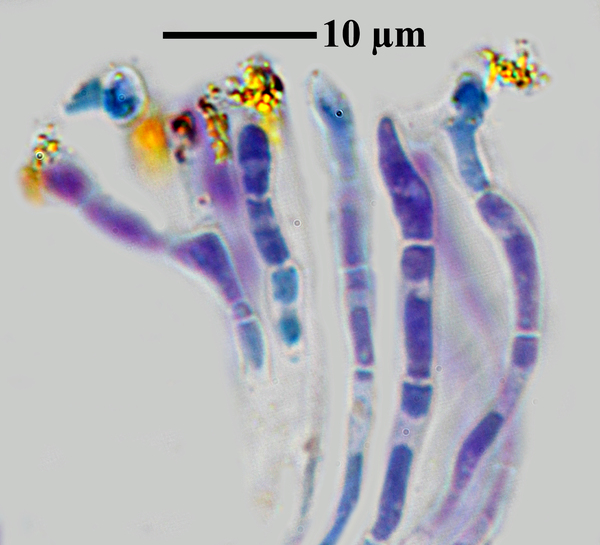

Felix Schumm; Owner: Felix Schumm - CC BY-SA 4.0
[19574], Austria, Salisburgia, Tennengebirge, Abtenau, in pede orient. montis, Fritzer-Kogels, alt. 2120 m, ad saxa calcarea. Leg. H. Wittmann (8446), 25.5.1986. VEZDA: LICHENES SELECTI EXSICCATI NR. 2112.
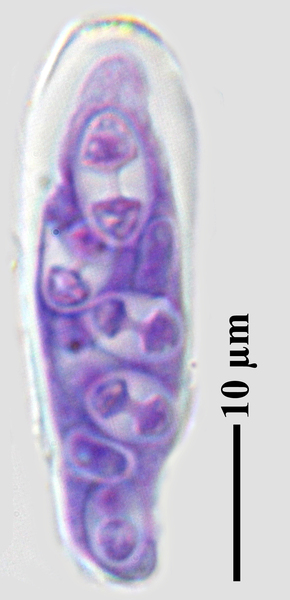

Felix Schumm; Owner: Felix Schumm - CC BY-SA 4.0
[19574], Austria, Salisburgia, Tennengebirge, Abtenau, in pede orient. montis, Fritzer-Kogels, alt. 2120 m, ad saxa calcarea. Leg. H. Wittmann (8446), 25.5.1986. VEZDA: LICHENES SELECTI EXSICCATI NR. 2112.
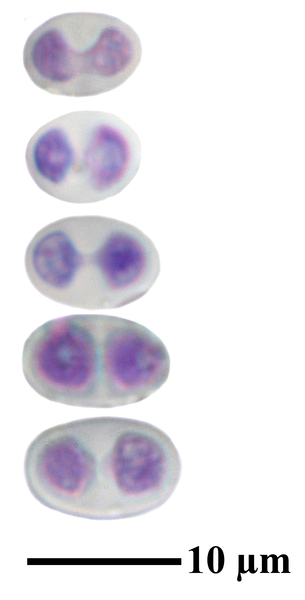

Felix Schumm; Owner: Felix Schumm - CC BY-SA 4.0
[19574], Austria, Salisburgia, Tennengebirge, Abtenau, in pede orient. montis, Fritzer-Kogels, alt. 2120 m, ad saxa calcarea. Leg. H. Wittmann (8446), 25.5.1986. VEZDA: LICHENES SELECTI EXSICCATI NR. 2112.
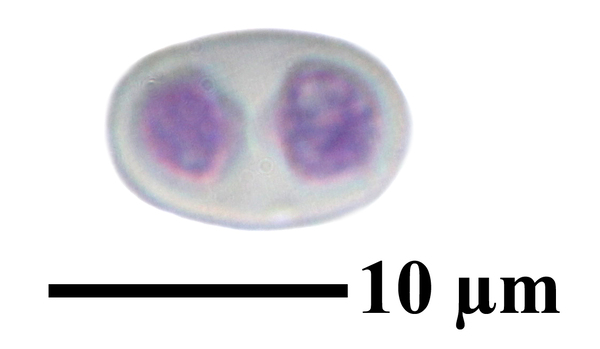

Felix Schumm; Owner: Felix Schumm - CC BY-SA 4.0
[19574], Austria, Salisburgia, Tennengebirge, Abtenau, in pede orient. montis, Fritzer-Kogels, alt. 2120 m, ad saxa calcarea. Leg. H. Wittmann (8446), 25.5.1986. VEZDA: LICHENES SELECTI EXSICCATI NR. 2112.
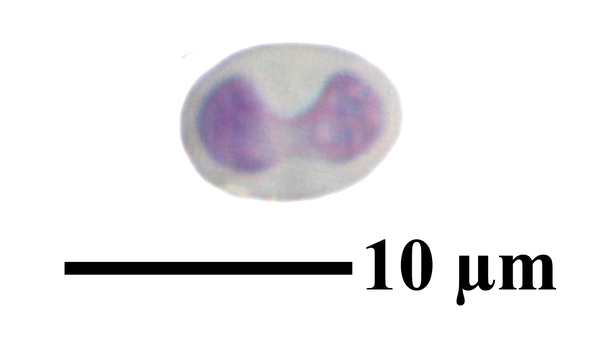

Felix Schumm; Owner: Felix Schumm - CC BY-SA 4.0
[19574], Austria, Salisburgia, Tennengebirge, Abtenau, in pede orient. montis, Fritzer-Kogels, alt. 2120 m, ad saxa calcarea. Leg. H. Wittmann (8446), 25.5.1986. VEZDA: LICHENES SELECTI EXSICCATI NR. 2112.
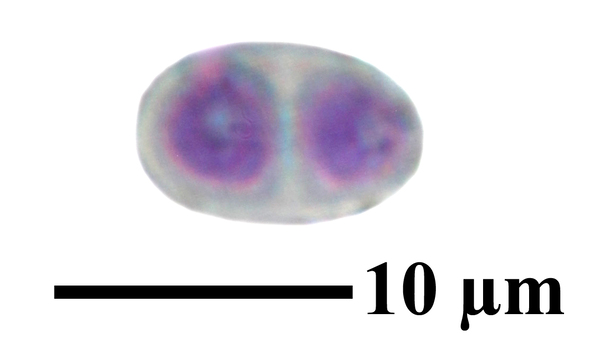

Felix Schumm; Owner: Felix Schumm - CC BY-SA 4.0
[19574], Austria, Salisburgia, Tennengebirge, Abtenau, in pede orient. montis, Fritzer-Kogels, alt. 2120 m, ad saxa calcarea. Leg. H. Wittmann (8446), 25.5.1986. VEZDA: LICHENES SELECTI EXSICCATI NR. 2112.
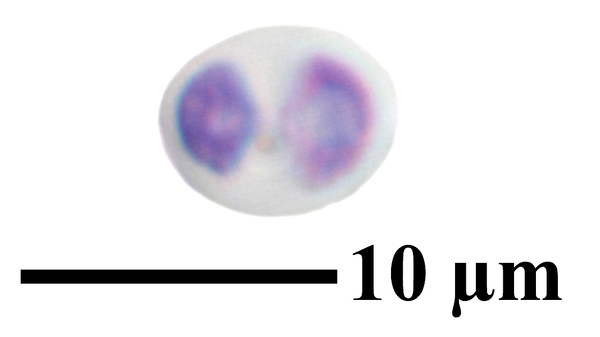

Felix Schumm; Owner: Felix Schumm - CC BY-SA 4.0
[19574], Austria, Salisburgia, Tennengebirge, Abtenau, in pede orient. montis, Fritzer-Kogels, alt. 2120 m, ad saxa calcarea. Leg. H. Wittmann (8446), 25.5.1986. VEZDA: LICHENES SELECTI EXSICCATI NR. 2112.
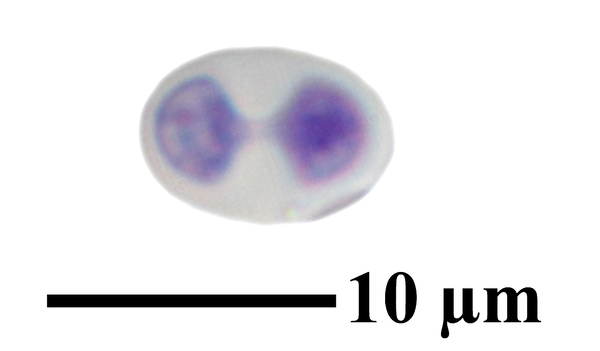

Felix Schumm; Owner: Felix Schumm - CC BY-SA 4.0
[19574], Austria, Salisburgia, Tennengebirge, Abtenau, in pede orient. montis, Fritzer-Kogels, alt. 2120 m, ad saxa calcarea. Leg. H. Wittmann (8446), 25.5.1986. VEZDA: LICHENES SELECTI EXSICCATI NR. 2112.
Growth form: Crustose endolithic
Substrata: rocks
Photobiont: green algae other than Trentepohlia
Reproductive strategy: mainly sexual
Commonnes-rarity: (info)
Alpine belt: rather rare
Subalpine belt: absent
Oromediterranean belt: absent
Montane belt: absent
Submediterranean belt: absent
Padanian area: absent
Humid submediterranean belt: absent
Humid mediterranean belt: absent
Dry mediterranean belt: absent

Predictive model
| Herbarium samples |


Felix Schumm - CC BY-SA 4.0
[19574], Austria, Salisburgia, Tennengebirge, Abtenau, in pede orient. montis, Fritzer-Kogels, alt. 2120 m, ad saxa calcarea. Leg. H. Wittmann (8446), 25.5.1986. VEZDA: LICHENES SELECTI EXSICCATI NR. 2112.


Felix Schumm - CC BY-SA 4.0
[19574], Austria, Salisburgia, Tennengebirge, Abtenau, in pede orient. montis, Fritzer-Kogels, alt. 2120 m, ad saxa calcarea. Leg. H. Wittmann (8446), 25.5.1986. VEZDA: LICHENES SELECTI EXSICCATI NR. 2112.


Felix Schumm - CC BY-SA 4.0
[19574], Austria, Salisburgia, Tennengebirge, Abtenau, in pede orient. montis, Fritzer-Kogels, alt. 2120 m, ad saxa calcarea. Leg. H. Wittmann (8446), 25.5.1986. VEZDA: LICHENES SELECTI EXSICCATI NR. 2112.


Felix Schumm; Owner: Felix Schumm - CC BY-SA 4.0
[19574], Austria, Salisburgia, Tennengebirge, Abtenau, in pede orient. montis, Fritzer-Kogels, alt. 2120 m, ad saxa calcarea. Leg. H. Wittmann (8446), 25.5.1986. VEZDA: LICHENES SELECTI EXSICCATI NR. 2112.


Felix Schumm; Owner: Felix Schumm - CC BY-SA 4.0
[19574], Austria, Salisburgia, Tennengebirge, Abtenau, in pede orient. montis, Fritzer-Kogels, alt. 2120 m, ad saxa calcarea. Leg. H. Wittmann (8446), 25.5.1986. VEZDA: LICHENES SELECTI EXSICCATI NR. 2112.


Felix Schumm; Owner: Felix Schumm - CC BY-SA 4.0
[19574], Austria, Salisburgia, Tennengebirge, Abtenau, in pede orient. montis, Fritzer-Kogels, alt. 2120 m, ad saxa calcarea. Leg. H. Wittmann (8446), 25.5.1986. VEZDA: LICHENES SELECTI EXSICCATI NR. 2112.


Felix Schumm; Owner: Felix Schumm - CC BY-SA 4.0
[19574], Austria, Salisburgia, Tennengebirge, Abtenau, in pede orient. montis, Fritzer-Kogels, alt. 2120 m, ad saxa calcarea. Leg. H. Wittmann (8446), 25.5.1986. VEZDA: LICHENES SELECTI EXSICCATI NR. 2112.


Felix Schumm; Owner: Felix Schumm - CC BY-SA 4.0
[19574], Austria, Salisburgia, Tennengebirge, Abtenau, in pede orient. montis, Fritzer-Kogels, alt. 2120 m, ad saxa calcarea. Leg. H. Wittmann (8446), 25.5.1986. VEZDA: LICHENES SELECTI EXSICCATI NR. 2112.


Felix Schumm; Owner: Felix Schumm - CC BY-SA 4.0
[19574], Austria, Salisburgia, Tennengebirge, Abtenau, in pede orient. montis, Fritzer-Kogels, alt. 2120 m, ad saxa calcarea. Leg. H. Wittmann (8446), 25.5.1986. VEZDA: LICHENES SELECTI EXSICCATI NR. 2112.


Felix Schumm; Owner: Felix Schumm - CC BY-SA 4.0
[19574], Austria, Salisburgia, Tennengebirge, Abtenau, in pede orient. montis, Fritzer-Kogels, alt. 2120 m, ad saxa calcarea. Leg. H. Wittmann (8446), 25.5.1986. VEZDA: LICHENES SELECTI EXSICCATI NR. 2112.


Felix Schumm; Owner: Felix Schumm - CC BY-SA 4.0
[19574], Austria, Salisburgia, Tennengebirge, Abtenau, in pede orient. montis, Fritzer-Kogels, alt. 2120 m, ad saxa calcarea. Leg. H. Wittmann (8446), 25.5.1986. VEZDA: LICHENES SELECTI EXSICCATI NR. 2112.


Felix Schumm; Owner: Felix Schumm - CC BY-SA 4.0
[19574], Austria, Salisburgia, Tennengebirge, Abtenau, in pede orient. montis, Fritzer-Kogels, alt. 2120 m, ad saxa calcarea. Leg. H. Wittmann (8446), 25.5.1986. VEZDA: LICHENES SELECTI EXSICCATI NR. 2112.


 INDEX FUNGORUM
INDEX FUNGORUM
 GBIF
GBIF
 DOLICHENS
DOLICHENS
